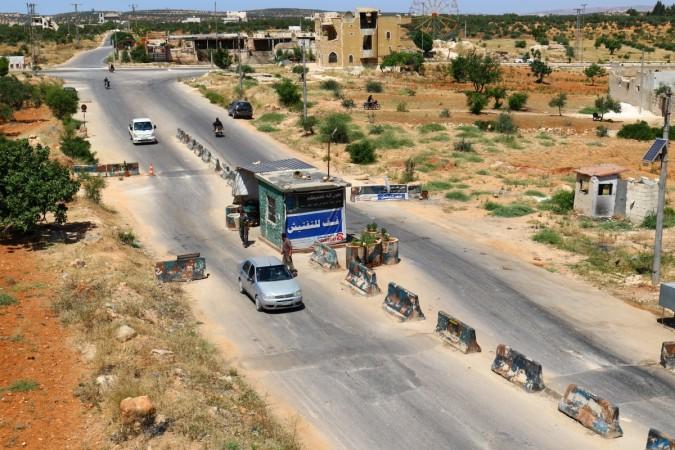
With the United States inching towards victory in its fight against Islamic State militants in Syria, Al-Qaeda militants continue to make advances to maintain their control over the province of Idlib, which lies about 150 miles away from Raqqa - the caliphate's capital.
The operation to free Raqqa from the ISIS stronghold had entered its third month this August. In the last two months, the number of ISIS fighters in Raqqa has fallen from 5,000 to 1,500, according to a Fox News report.
Towards the end of last month, extremist faction Hayat Tahrir al-Sham (HTS) had clashed with Ahrar al-Sham to successfully take control of most of the area in Idlib. It went on to capture the key border near Turkey.
HTS triumph - a tragedy for the US
Previously called Syria's Al-Qaeda (AQ) branch at Al-Nusra front, HTS was later renamed Jabhat Fateh al-Sham. A US spokesperson, Eric Pahon, said that the Donald Trump administration and Turkish officials had discussed their mutual concerns with the situation in Idlib and said that they would protect the homeland from terrorist attacks emanating from the area.
Meanwhile, the US State Department's Syria envoy, Michael Ratney, has called the HTS triumph as one of the "biggest tragedies" in the ongoing war. Another state department official, on conditions of anonymity, reportedly said that the HTS takeover had indeed become a matter of concern.
The Syrian civil war had started during the spring of 2011 following the peaceful protests against President Bashar Assad's regime. It reportedly claimed the lives of about 500,000 people. Idlib became the major government opposition stronghold after its population swelled from a pre-war estimate of less that 1.5 million to more than 2 million with thousands of displaced people from Homs and Aleppo flocking the place.
![Ceasefire at Lebanese-Syrian border [Representational image] Ceasefire takes effect on Lebanese-Syrian border](https://data1.ibtimes.co.in/en/full/656622/ceasefire-takes-effect-lebanese-syrian-border.jpg?h=450&l=50&t=50)
Taking into account the name changes made by the terrorist group, the official said that the group remains committed to conducting attacks against the US and also stressed on the fact that the US was committed to taking all necessary steps to counter al-Nusra.
HTS working its way into Idlib
Reports say that HTS forces had started tightening their grip on economic matters and policy making in the area several months ahead of their mass offensive. Youssef Sadaki, a media coordinator for Damascus media centre, told Fox News that a terrorist militia now controlled millions of people and even threatened the Kurdish areas as well. With troops from Arsal lending support from the Lebanese border to HTS, no group has the strength to fight them.

A former Syrian diplomat and political advisor says that HTS does not even hide its Al-Qaeda relations and pointed out that these conditions will be favourable for the HTS/Al-Qaeda to recruit. Locals, who understand HTS taking control of the civilian life by pretending to be a part of the revolution, have been trying to educate the youth to not join them.
















